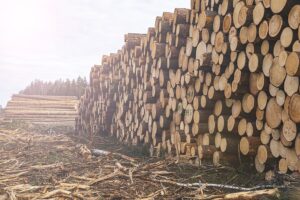Enviva reports “difficult and disappointing” Q1 2023 results

The company further reported adjusted EBITDA for Q1 2023 of $3.4m (€3m), as compared to $36.6m (€33.1m) for the corresponding quarter last year.
The company put its performance down to operating cost overages and production challenges. Although it said plant production is increasing and it is reducing its operating cost position, neither improvement is materialising at the rate it forecasted a few months ago, said Thomas Meth, president and CEO.
"We know what the specific issues are: contract labour is too high, discipline around repairs and maintenance spend is insufficient, wood input costs need to come down further and stay there, and utilisation rates at specific plants need to improve and stabilise at those improved levels," he said.
The company has updated certain full-year 2023 guidance metrics, including revising net loss to a range of $186m to $136m (€168m to €123m), and adjusted EBITDA to a range of $200m to $250m (€181m to €226m).
"Although the future continues to be incredibly bright for Enviva's business, we have had a difficult and disappointing start to 2023," Meth said.
He added that: "Based on results from the first four months of the year, we believe it is prudent to take a more conservative view on the timing of our ability to deliver these improvements.”
The company delivered approximately 1.3 million metric tonnes (MT) during the first quarter of 2023, which was 20% higher compared with Q1 2022. However, this fell short of management's expectations of approximately 1.5 million MT. Delivered at port cost per MT declined by $9 (€8.1), but remained higher than management’s expectations.
Capital allocation
In light of the results, Enviva has decided to alter its capital allocation priorities to direct cash flows from the business to highest-returning opportunities.
Its priorities, in order, are: effectively managing liquidity and leverage; improving operating cost and productivity of its current asset platform; returning capital to stockholders through share repurchases, and; accelerating, where appropriate, investments in new fully contracted wood pellet production assets.
"While the board of directors remains convinced of management’s ability to deliver the originally forecasted operational and financial performance over time, it is clearly taking longer than expected,” said John Keppler, executive chairman of the board.
“To more conservatively underwrite that plan and ensure the ability of the company to capture the value of the fully contracted growth ahead, after careful consideration with management, the board of directors evaluated the most accretive uses of the company’s capital and decided to revise Enviva’s capital allocation framework, eliminating the company’s quarterly dividend in order to preserve liquidity and a conservative leverage profile, maintain our current growth trajectory, potentially accelerate future investments in new fully contracted plant and port assets and implement a limited share repurchase programme.”
With the elimination of the dividend, management expects to retain approximately $1 billion (€905m) in incremental cash flow during the period 2023 to 2026, providing incremental liquidity and investment into the productivity and operational improvements in its current assets and further reduce the need to access the capital markets to fund its current growth plans, which include the construction of the company’s fully contracted wood pellet production facilities in Epes, Alabama and near Bond, Mississippi.
Under the share repurchase program authorised by the board of directors, Enviva can repurchase up to $100 million (€90.5m) in shares of the company’s common stock opportunistically from time to time in the open market, or in privately negotiated transactions at prevailing market prices, or by such other means as will comply with applicable state and federal securities laws.
This is the company’s first authorisation for share repurchases since its founding.
Enviva also announced a 10-year take-or-pay off-take contract with its existing Japanese counterparty for deliveries of approximately 300,000 metric tons per year. The company said the contract reflects favourable long-term pricing environment for wood pellets, and deliveries are expected to commence in tandem with new capacity coming on line.
Meth commented: “We recognise this is an important departure from the plan we laid out at our Investor Day a month ago, but a lot has changed since then. Compared to our expectations, while our cost position has trended in the right direction, it has done so at a much slower pace than we had anticipated, in part due to slower volume growth, and in part due to a higher spend profile for the volume growth we did achieve.”
Meth concluded: “Against this backdrop of operational challenges, we are undergoing an extensive review of where we are allocating our capital. We believe we have more accretive capital allocation alternatives, which start with improving returns from our existing fleet of assets, growing our fully contracted asset base, managing liquidity and leverage, and also include the potential to opportunistically repurchase our shares in the open market, which we believe have traded below their intrinsic value for some time.”


























